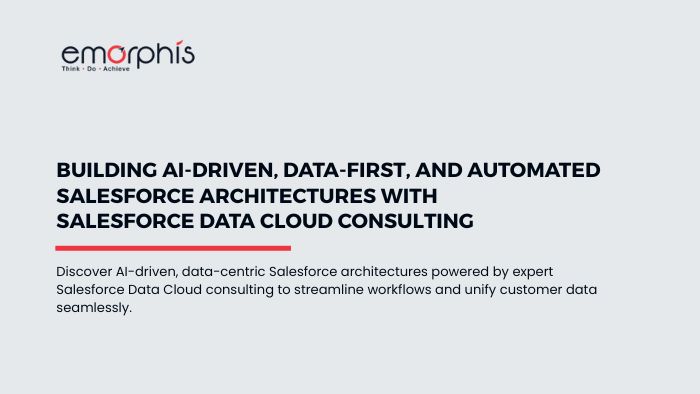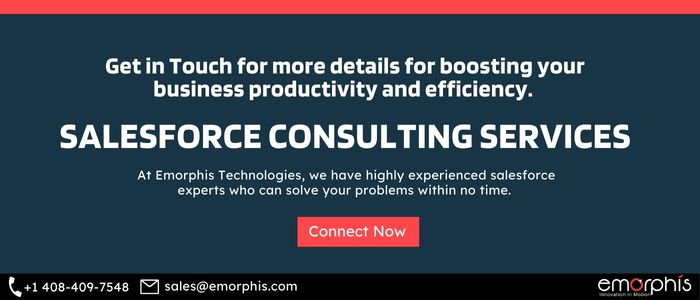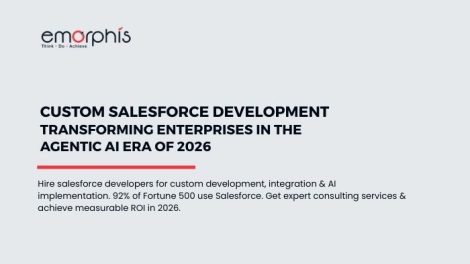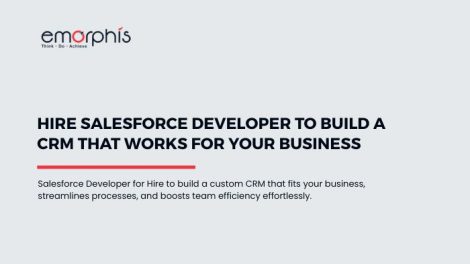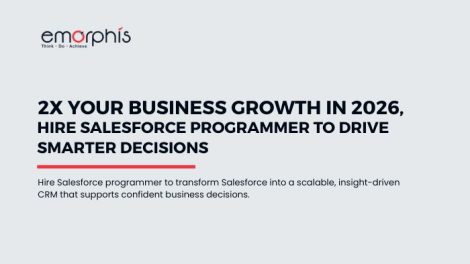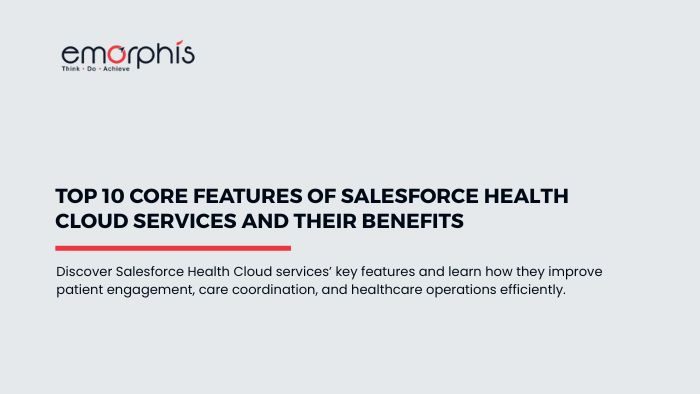Introduction
In 2025, Salesforce consulting is rapidly evolving. Businesses are no longer looking for simple CRM implementations; they need AI-driven, data-first, and automated Salesforce architectures that can scale, integrate with multiple systems, and deliver actionable insights in real time. This is where Salesforce Data Cloud Consulting becomes essential.
By leveraging AI, hyperautomation, and advanced data management strategies, consultants enable organizations to streamline processes, unify customer data, and make informed decisions more quickly. With real-time analytics and predictive models, companies can optimize customer interactions, reduce operational costs, and ensure high accuracy across business functions.
The growing adoption of Salesforce Data Cloud Consulting reflects the demand for smarter, more automated, and efficient solutions. By focusing on data-first strategies, organizations can unlock insights that were previously hidden in silos, enabling proactive and predictive business decisions.
This article will explore the technical aspects of Salesforce Data Cloud Consulting, AI integration, hyperautomation, DevOps, and multi-cloud architectures, providing a clear roadmap for modern Salesforce implementations.
To understand why these solutions are critical, we first need to define what Salesforce Data Cloud Consulting is and why it is different from traditional consulting approaches.
Understanding Salesforce Data Cloud Consulting
Salesforce Data Cloud Consulting is a specialized branch of Salesforce consulting that focuses on helping organizations centralize, manage, and utilize all customer data in real time. Unlike traditional Salesforce consulting, which primarily focuses on Sales Cloud, Service Cloud, or Marketing Cloud, Data Cloud consulting emphasizes a data-first approach, enabling intelligent automation and AI-driven workflows.
Key aspects of Salesforce Data Cloud Consulting include:
- Unified Customer Profiles: Combining structured and unstructured data from multiple sources into a single, consistent view.
- Real-Time Data Processing: Ingesting and processing high volumes of data instantly, allowing immediate insights.
- AI and Predictive Analytics Integration: Using AI to identify trends, forecast customer behavior, and recommend actions.
- Hyperautomation Enablement: Automating repetitive workflows across departments using Salesforce Flow, RPA, and AI.
- Scalable Architecture: Ensuring that the system can handle future growth, integrations, and complex data requirements.
The benefits of Salesforce Data Cloud Consulting include faster decision-making, improved customer engagement, reduced operational overhead, and a more agile IT environment. This approach also allows companies to adopt AI capabilities more seamlessly, improving overall business intelligence.
With a clear understanding of Data Cloud consulting, the next step is to see how AI can be integrated into Salesforce architectures for smarter decision-making and automated workflows.
Integrating AI into Salesforce Architectures
Artificial Intelligence (AI) is no longer optional in modern Salesforce implementations. Through Salesforce Data Cloud Consulting, organizations can integrate AI to transform raw customer data into actionable insights, automate complex workflows, and deliver highly personalized experiences.
Key AI Integration Components
- Agentic AI and Autonomous Agents: Salesforce’s AI solutions, such as Agentic AI or Agentforce, can act autonomously within workflows. Instead of only providing suggestions, these agents can complete tasks such as sending personalized emails, assigning cases to the correct team, or even initiating follow-up actions based on predictive analysis.
- Predictive Analytics: AI models analyze historical and real-time data to forecast customer behavior, sales opportunities, or potential churn. By leveraging Salesforce Data Cloud Consulting, consultants can implement predictive algorithms directly on unified customer profiles, enabling proactive decision-making.
- Natural Language Processing (NLP) for Automation: Using NLP, AI can interpret unstructured data such as emails, chat messages, or social media posts. Automated workflows can then be triggered based on insights extracted from these data streams.
- AI-Driven Personalization: AI models personalize customer interactions across sales, service, and marketing channels. Recommendations, offers, and automated engagement campaigns are generated in real time, increasing conversion rates and customer satisfaction.

Benefits of AI Integration in Salesforce Architectures
- Improved Efficiency: Automated decision-making reduces manual tasks.
- Enhanced Accuracy: AI reduces errors in forecasting, assignments, and data processing.
- Scalable Automation: AI enables complex processes to scale without additional human resources.
- Better Customer Engagement: Personalized interactions lead to higher customer retention and satisfaction.
By integrating AI, Salesforce Data Cloud Consulting ensures that organizations can harness data intelligently, enabling not only reactive decision-making but also proactive business strategies.
Now that AI is integrated, the next focus is on managing the underlying data efficiently, real-time ingestion, unified profiles, and analytics, so organizations can fully capitalize on these AI capabilities.
Real-Time Data and Unified Customer Profiles
In modern Salesforce architectures, having accurate and real-time data is essential. Salesforce Data Cloud Consulting focuses on unifying all customer information from different sources to create a single source of truth. This unified profile allows businesses to make informed decisions quickly and ensures that AI-driven processes have the correct data to work with.
Key Components of Real-Time Data Management
- Data Ingestion: Data is collected continuously from multiple sources, including CRM systems, websites, mobile apps, social media, and IoT devices. Real-time ingestion ensures that all information is up to date and ready for analysis.
- Data Normalization: Incoming data is cleaned, standardized, and formatted so that all records are consistent. This eliminates duplication and ensures that every department works with accurate information.
- Single Customer View: By integrating structured and unstructured data, Salesforce Data Cloud Consulting creates a unified customer profile. Sales, marketing, and service teams all see the same information, which improves collaboration and decision-making.
- Analytics and Insights: Unified data allows advanced analytics and dashboards to provide actionable insights. Businesses can track trends, forecast outcomes, and monitor customer behavior in real time.
Benefits of Unified Customer Profiles
- Improved accuracy of reports and analytics
- Faster and more intelligent decision-making
- Enhanced customer engagement through personalized interactions
- Reduced operational inefficiencies and errors
By centralizing and unifying data, organizations can fully leverage AI and automation in their Salesforce ecosystems. Accurate real-time data is the foundation that makes predictive analytics, hyperautomation, and intelligent workflows effective.
With unified data in place, the next step is to implement hyperautomation and orchestrated workflows to make business processes faster, more accurate, and fully automated.

Hyperautomation and Workflow Orchestration
Hyperautomation is the next step in building efficient Salesforce architectures. With Salesforce Data Cloud Consulting, businesses can combine AI, robotic process automation, and Salesforce workflows to automate complex processes across multiple departments.
Key Elements of Hyperautomation
- Salesforce Flow: Salesforce Flow allows businesses to automate business processes without heavy coding. Workflows can be triggered based on specific events, such as a new lead or customer support ticket.
- Robotic Process Automation (RPA): RPA can handle repetitive tasks such as data entry, system updates, and report generation. By integrating RPA with Salesforce, organizations can reduce human error and free up employees for higher-value tasks.
- AI-Powered Decision Making: AI models analyze real-time data to make decisions automatically. For example, a lead scoring model can automatically assign high-potential leads to sales representatives or trigger personalized marketing campaigns.
- Orchestration Across Departments: Workflow orchestration ensures that processes are coordinated between sales, marketing, and service teams. Automated approvals, notifications, and task assignments can all be managed within a single platform.
Benefits of Hyperautomation
- Increased operational efficiency and reduced manual work
- Faster response times to customer inquiries and market changes
- Enhanced accuracy and consistency in business processes
- Scalability to handle higher volumes without adding staff
Hyperautomation turns unified customer data and AI insights into tangible business outcomes. It ensures that processes are not only automated but also intelligent, adaptable, and measurable.
Once workflows are automated, it is important to manage deployment, releases, and system updates efficiently. This is where DevOps and managed services in Salesforce Data Cloud Consulting play a critical role.
DevOps, CI/CD, and Managed Services
Managing complex Salesforce architectures requires more than just implementation. Salesforce Data Cloud Consulting includes DevOps practices, continuous integration and deployment, and managed services to ensure stability, scalability, and efficiency.
Key Components
- DevOps Practices: DevOps integrates development and operations teams to improve collaboration and streamline software delivery. In Salesforce, this includes version control, automated testing, and monitoring of system performance.
- Continuous Integration and Continuous Deployment (CI/CD): CI/CD pipelines allow changes to be automatically tested and deployed across Salesforce environments. This ensures that updates are consistent, reliable, and do not disrupt existing workflows.
- Managed Services: Managed services provide ongoing support and maintenance for Salesforce architectures. Consultants monitor system performance, manage updates, handle troubleshooting, and ensure that AI-driven and automated processes continue to run smoothly.
- Governance and Compliance: Managed services also enforce governance rules, data security policies, and compliance with industry regulations. This is critical for organizations dealing with sensitive customer data.
Benefits
- Reduced risk of system errors and downtime
- Faster deployment of updates and features
- Continuous optimization of workflows and AI models
- Peace of mind knowing that the architecture is monitored and maintained
Implementing DevOps, CI/CD, and managed services ensures that your AI-driven, data-first Salesforce architecture remains robust and adaptable to changing business needs.
After ensuring operational stability, the next step is to focus on security, compliance, and ethical AI practices to protect data and maintain trust.
Security, Compliance, and Ethical AI
Security and compliance are essential in any Salesforce architecture. With Salesforce Data Cloud Consulting, organizations can implement robust measures to protect sensitive data while ensuring ethical use of AI-driven processes.
Key Elements
- Data Security: Salesforce provides advanced encryption, access controls, and authentication mechanisms. Consultants ensure that all customer and business data is protected from unauthorized access and breaches.
- Regulatory Compliance: Organizations must comply with regulations such as GDPR, HIPAA, and SOX. Salesforce Data Cloud Consulting helps businesses implement policies, audits, and workflows that meet these legal requirements.
- Ethical AI Practices: AI models must be transparent, explainable, and free from bias. Ethical AI practices involve monitoring AI outputs, validating predictions, and documenting decision-making processes to ensure accountability.
- Risk Management: Consultants identify potential risks in AI and automated workflows and develop mitigation strategies. This ensures business continuity and reduces the impact of errors or failures.
Benefits
- Protected customer data and reduced risk of breaches
- Compliance with industry and regional regulations
- Responsible AI usage that builds trust with stakeholders
- Reduced operational and legal risks through proactive management
By incorporating security, compliance, and ethical AI, organizations can confidently scale their AI-driven, data-first Salesforce architectures without compromising trust or integrity.
Once security and compliance are addressed, businesses can focus on implementing these architectures in specific industries to maximize impact and meet unique business needs.
Industry-Specific Implementations – Key Industry Use Cases
Modern Salesforce architectures are most effective when tailored to the specific needs of an industry. Salesforce Data Cloud Consulting enables businesses in healthcare, financial services, manufacturing, and other verticals to leverage AI, automation, and real-time data for targeted outcomes.
Healthcare
- Unified patient profiles with real-time health data from EHR systems, wearable devices, and telehealth platforms.
- AI-driven patient engagement through automated appointment reminders, personalized care plans, and virtual assistants.
- Predictive analytics for identifying at-risk patients and proactively managing chronic conditions.
- Compliance with HIPAA, HITECH, and other healthcare regulations through secure workflows and audit tracking.
- Automated reporting for hospitals and clinics, enabling faster insights into treatment outcomes and operational efficiency.
- Integration with medical devices and lab systems for real-time updates and alerts to care teams.
Find the case study on the Implementation of Salesforce Health Cloud
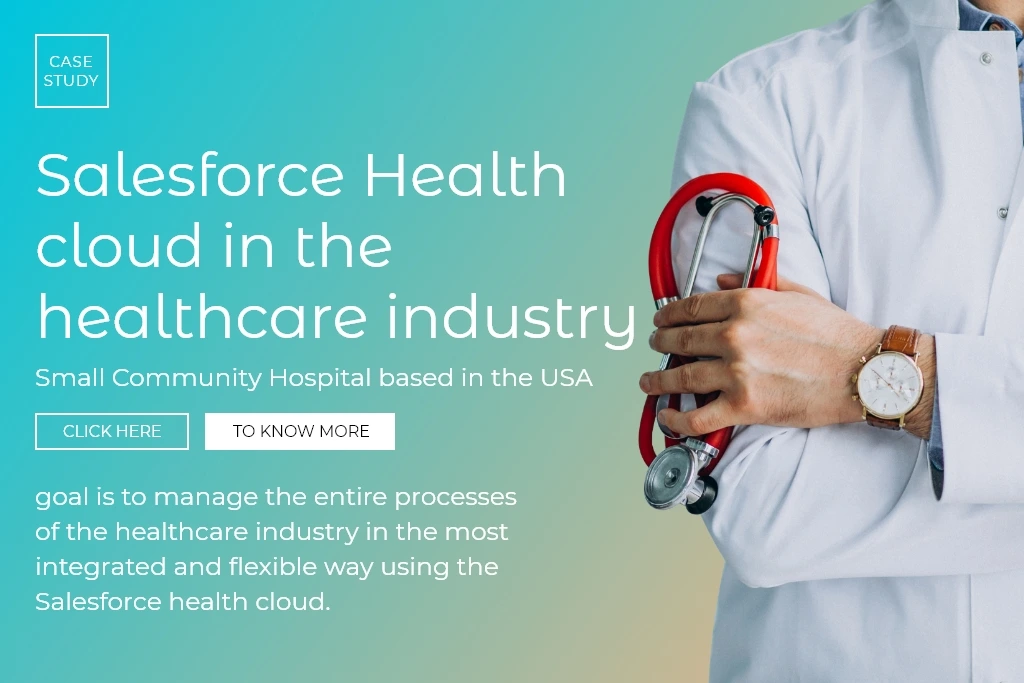
Financial Services
- Customer risk profiling and fraud detection using AI algorithms that analyze transactions in real time.
- Automated loan processing, credit scoring, and investment recommendations to improve turnaround times.
- Secure handling of sensitive financial data with encryption, access control, and audit logs.
- Personalized customer experiences through AI-driven recommendations for banking, wealth management, and insurance products.
- Regulatory compliance for SOX, FINRA, and GDPR through automated reporting and workflow controls.
- Predictive analytics to detect market trends, anticipate customer needs, and reduce operational risk.
Find the case study on Salesforce to Sage Intacct Integration.
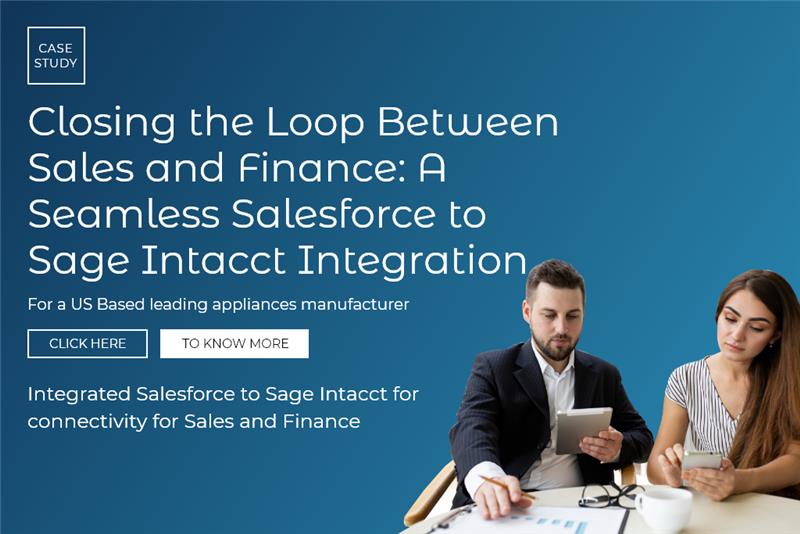
Manufacturing
- Real-time tracking of production lines, inventory, and supply chain data using Salesforce Data Cloud integrations.
- Predictive maintenance with AI models analyzing equipment performance and usage patterns to prevent downtime.
- Integration with IoT devices to monitor machinery, environmental conditions, and product quality.
- Automated workflows for order fulfillment, procurement, and vendor management.
- Data-driven insights for capacity planning, resource allocation, and production optimization.
- Collaboration tools for field engineers, operations managers, and supply chain teams to share real-time data.
Find a case study on Salesforce for sales and order management in a manufacturing company.
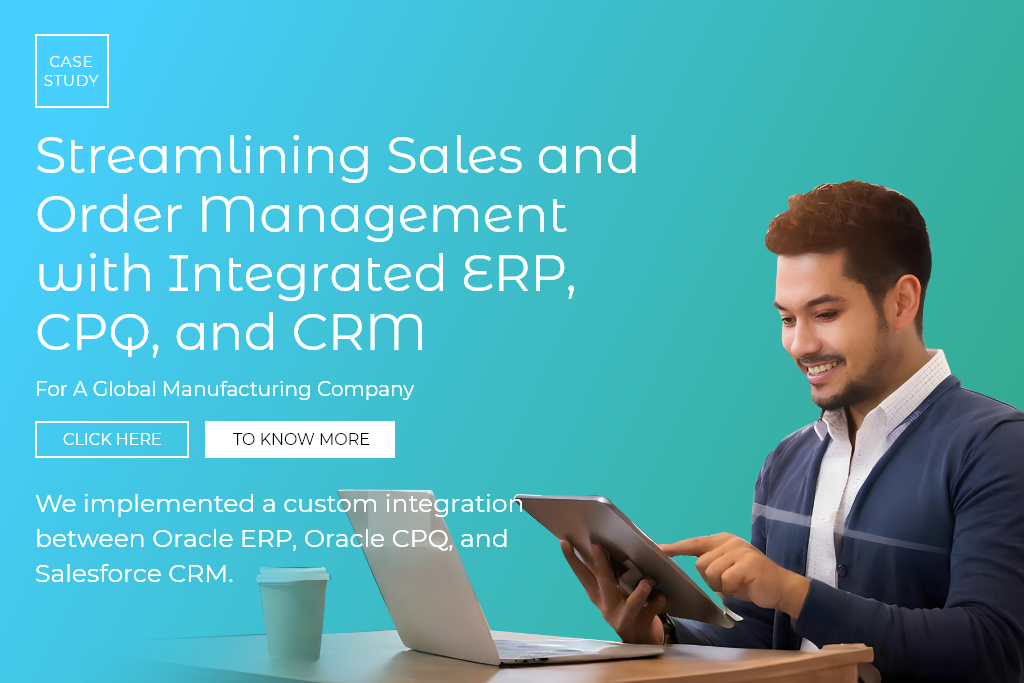
Retail and E-commerce
- Personalized marketing campaigns based on unified customer profiles and purchase history.
- AI-driven product recommendations and cross-selling strategies to improve sales.
- Inventory optimization using predictive analytics to maintain stock levels and reduce wastage.
- Automated customer support with AI chatbots, including returns processing and order tracking.
- Dynamic pricing and promotion management powered by real-time market and customer behavior insights.
- Integration with POS, e-commerce platforms, and loyalty programs for a seamless omnichannel experience.
Find a case study on a custom Salesforce crm integrated with a legacy POS system.
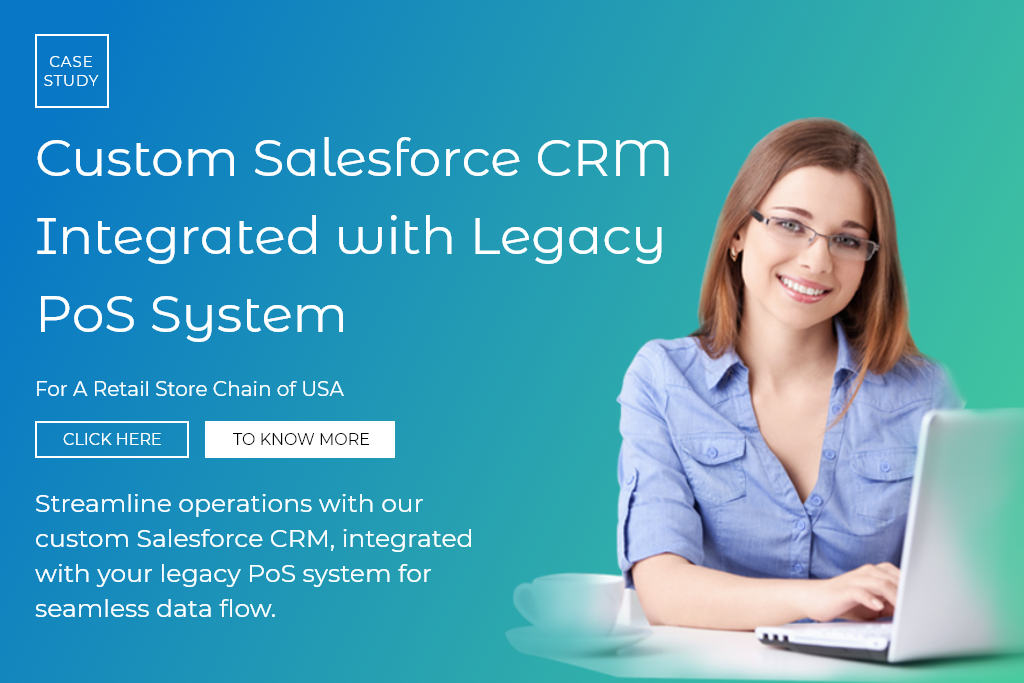
Education
- Centralized student profiles to track academic performance, attendance, and engagement across platforms.
- AI-driven course recommendations, learning analytics, and adaptive learning paths for students.
- Automated administrative workflows for enrollment, grading, and scheduling.
- Real-time dashboards for faculty and administrators to monitor student progress and resource utilization.
- Personalized communication to students and parents using AI-based notifications and reminders.
- Integration with learning management systems (LMS), libraries, and virtual classrooms for unified data management.
Find details of the case study on Salesforce in Education sector.
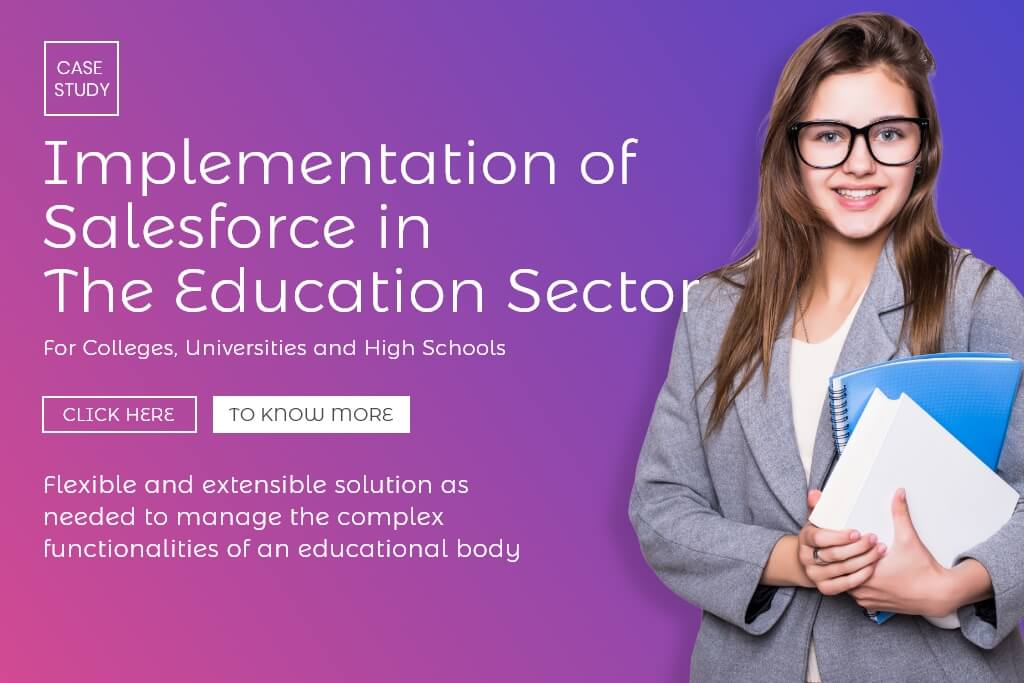
Non-Profit
- Unified donor and volunteer data to improve engagement, retention, and fundraising outcomes.
- AI-powered campaign recommendations, donor segmentation, and fundraising predictions.
- Automated workflows for donation tracking, grant management, and reporting on social impact.
- Real-time dashboards for executives to monitor campaigns, volunteer activity, and organizational performance.
- Personalized communication to donors and volunteers based on past engagement and preferences.
- Integration with fundraising platforms, email marketing, and CRM systems for seamless operations.
Find the case study details on the NPSP set up for non-profit.
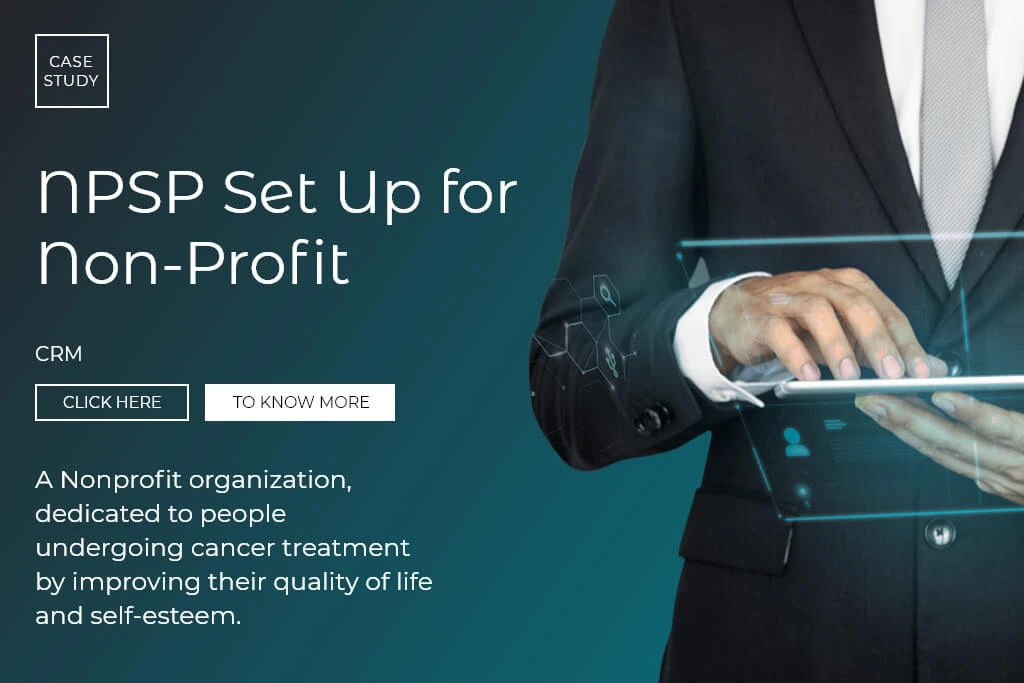
Media
- Real-time audience data aggregation from social media, streaming platforms, and websites for targeted content delivery.
- AI-driven content recommendation engines to personalize experiences for subscribers and viewers.
- Automated publishing schedules, content approval workflows, and campaign performance tracking.
- Predictive analytics to forecast audience engagement, churn, and content demand.
- Integration with advertising networks, video platforms, and social media channels for unified campaign management.
- Workflow automation for rights management, royalty tracking, and licensing compliance.
Find the case study on Salesforce DocuSign integration.
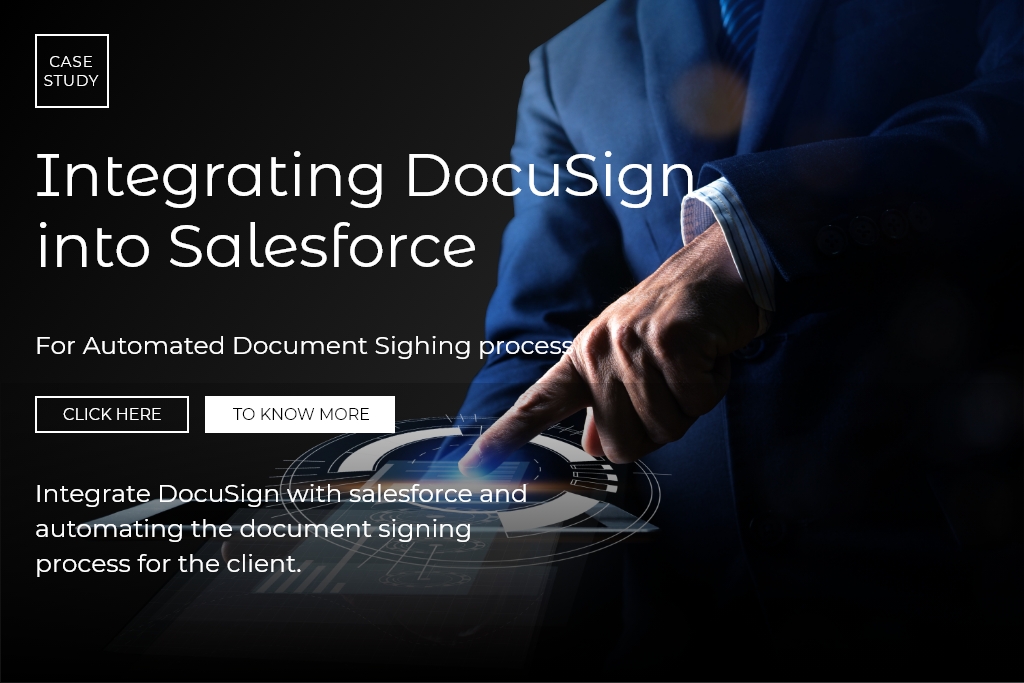
Telecom
- Unified customer usage and behavior profiles for accurate billing, segmentation, and personalized offers.
- AI-driven churn prediction and proactive retention campaigns to reduce customer loss.
- Automated service ticketing, network monitoring, and maintenance alerts using AI insights.
- Real-time analytics for network performance, customer complaints, and service quality.
- Integration with OSS/BSS systems, IoT devices, and CRM platforms for seamless operations.
- Predictive planning for infrastructure upgrades, new product launches, and service optimization.
Find the case study on Salesforce CPQ and Billing.
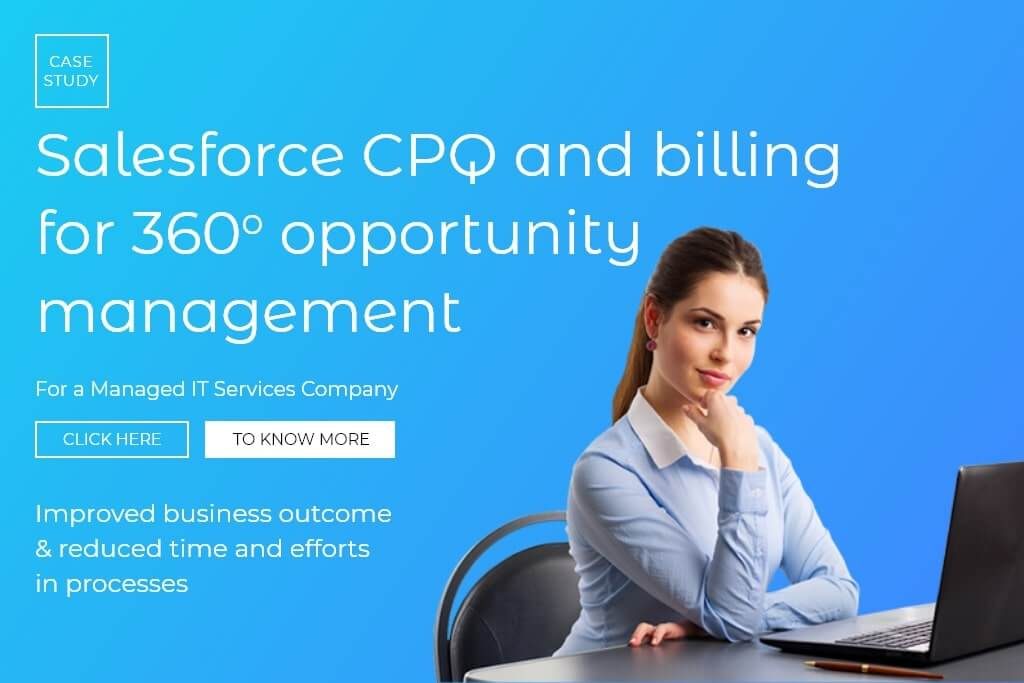
Benefits of Industry-Specific Salesforce Data Cloud Consulting
- Tailored solutions that address regulatory and operational requirements
- Improved efficiency and accuracy in business processes
- Higher ROI by implementing solutions that align with industry challenges
- Enhanced customer satisfaction and engagement
Customizing Salesforce architectures for specific industries ensures that AI, automation, and data-first strategies deliver measurable results and address unique business problems effectively.
Further, find the details on offerings with the links to various Salesforce product implementations.
- Salesforce Experience Cloud Implementation
- Salesforce Health Cloud
- Salesforce Education Cloud
- Salesforce Nonprofit Cloud
- Salesforce Manufacturing Cloud
- Salesforce CPQ
With industry-specific implementations in place, the next focus is on integrating Salesforce with other systems and cloud platforms to create a seamless, multi-cloud architecture.
Multi-Cloud and Integration Strategies
For modern enterprises, Salesforce cannot operate in isolation. Salesforce Data Cloud Consulting emphasizes multi-cloud integration, connecting Salesforce with other platforms such as AWS, Azure, ERP systems, and IoT devices to create a seamless and real-time data ecosystem.
Key Integration Components
-
APIs and Connectors
Salesforce provides robust APIs that allow secure and scalable data exchange with other systems. Consultants design integrations that maintain data integrity and minimize latency. -
Event-Driven Architecture
Using platform events and messaging services, Salesforce can process events in real time. This allows businesses to trigger workflows, notifications, or AI-driven actions across connected systems. -
Hybrid Cloud Solutions
Some organizations require a combination of on-premises and cloud infrastructure. Multi-cloud strategies ensure data flows securely between Salesforce and other enterprise systems while complying with regional data regulations. -
IoT Integration
Data from IoT devices can be ingested into Salesforce Data Cloud to monitor operations, predict maintenance needs, and enhance decision-making.
Benefits of Multi-Cloud Integration
- Real-time visibility across business systems
- Unified data for AI and automation workflows
- Enhanced scalability and operational efficiency
- Reduced manual data entry and errors
By implementing robust multi-cloud integration strategies, businesses can fully leverage their Salesforce investments. Data flows seamlessly between platforms, AI models have richer data to analyze, and automated workflows operate more efficiently.
Find the details of a case study on Salesforce Optimization for a global consulting specialist.
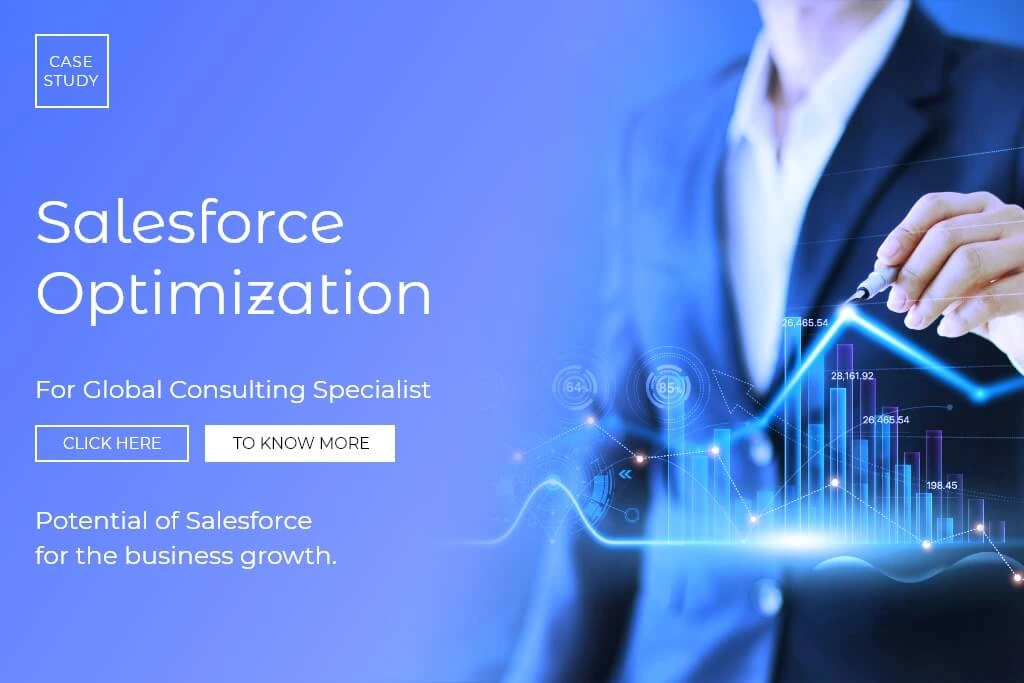
After establishing integration and multi-cloud capabilities, it is important to consider future trends in Salesforce consulting to stay ahead in the rapidly evolving AI-driven, data-first landscape.
Future Trends in Salesforce Data Cloud Consulting
The future of Salesforce consulting is being shaped by rapid advancements in AI, automation, and cloud technologies. Businesses that invest in Salesforce Data Cloud Consulting now will be well-positioned to leverage emerging trends and maintain a competitive edge.
a. Advanced AI and Machine Learning
AI models will become more sophisticated, offering predictive insights, automated decision-making, and natural language understanding to enhance customer engagement and operational efficiency.
b. Hyperautomation Expansion
The combination of AI, RPA, and workflow orchestration will continue to grow. More processes will be automated end-to-end, reducing manual work and increasing productivity.
c. Real-Time Data Everywhere
Real-time data processing will become standard. Organizations will rely on instantaneous insights for proactive decision-making, customer engagement, and predictive maintenance.
d. Voice and Conversational Interfaces
Voice-activated Salesforce applications and AI chatbots will become mainstream, providing hands-free access for field teams and improving the customer experience.
e. Industry-Specific Cloud Solutions
Verticalized Salesforce solutions for healthcare, finance, manufacturing, and retail will continue to grow, allowing consultants to provide highly tailored, regulated, and efficient implementations.
f. Responsible and Explainable AI
Ethical AI practices, transparency, and regulatory compliance will be critical. Organizations will need to ensure that AI models are auditable, unbiased, and explainable.
With an understanding of future trends, the next section will summarize the key points and explain why partnering with expert Salesforce Data Cloud consultants is essential for success.
Conclusion
Building AI-driven, data-first, and automated Salesforce architectures is no longer optional for businesses that want to stay competitive. Salesforce Data Cloud Consulting enables organizations to unify customer data, implement AI and hyperautomation, and integrate seamlessly with multiple systems.
By leveraging real-time data, predictive analytics, and intelligent workflows, companies can improve operational efficiency, reduce errors, and deliver personalized experiences to customers. Industry-specific solutions and multi-cloud integration ensure that Salesforce architectures meet unique business needs while remaining scalable and secure.
Partnering with expert Emorphis Salesforce consultants for Salesforce consulting services ensures that AI models are implemented responsibly, workflows are automated intelligently, and systems are continuously optimized. With Emorphis, businesses gain a future-ready Salesforce architecture capable of supporting innovation, growth, and superior customer engagement.
Investing in Salesforce Data Cloud Consulting with Emorphis today allows companies to take advantage of the latest trends in AI, automation, and data-driven decision-making, positioning themselves for success now and in the years to come.
Find details on our Salesforce Managed Services.
Frequently Asked Questions about Salesforce Data Cloud Consulting
1. What is Salesforce Data Cloud Consulting?
Salesforce Data Cloud Consulting is a specialized service that helps organizations unify, manage, and analyze customer data in real time. It enables AI-driven decision-making, hyperautomation, and seamless integration across Salesforce and other systems.
2. How does AI integrate with Salesforce architectures?
AI integrates through predictive analytics, autonomous agents, natural language processing, and personalization. This allows businesses to automate workflows, forecast outcomes, and improve customer engagement.
3. What are the benefits of real-time data and unified customer profiles?
They provide accurate, up-to-date information across Sales, Service, and Marketing teams. This enables faster decision-making, improved analytics, personalized interactions, and reduced operational errors.
4. What is hyperautomation in Salesforce?
Hyperautomation combines AI, robotic process automation (RPA), and Salesforce workflows to automate complex business processes. It increases efficiency, reduces manual effort, ensures accuracy, and allows processes to scale effectively.
5. Why is DevOps and CI/CD important for Salesforce architectures?
DevOps and CI/CD streamline development, deployment, and testing of Salesforce applications. They ensure system stability, faster release cycles, consistent updates, and effective monitoring, reducing errors and downtime.
6. How does Salesforce Data Cloud Consulting support compliance and ethical AI?
It implements data security, access controls, encryption, and audit tracking. Ethical AI practices ensure transparency, bias mitigation, and accountability while complying with regulations like GDPR, HIPAA, and SOX.
7. Which industries benefit most from Salesforce Data Cloud Consulting?
Industries such as healthcare, financial services, manufacturing, retail, education, non-profit, media, and telecom benefit by unifying data, implementing AI-driven workflows, and automating key processes for better decision-making.
8. How does multi-cloud integration improve Salesforce architecture?
Multi-cloud integration connects Salesforce with ERP systems, AWS, Azure, IoT devices, and other platforms. It enables real-time data flow, seamless workflows, enhanced scalability, and richer analytics for AI-driven decision-making.
9. What are the future trends in Salesforce Data Cloud Consulting?
Emerging trends include advanced AI and machine learning, expanded hyperautomation, real-time analytics, voice and conversational interfaces, industry-specific cloud solutions, and responsible AI practices to maintain transparency and compliance.
10. Why should businesses partner with Salesforce Data Cloud Consulting experts?
Partnering with experts ensures AI models are implemented responsibly, workflows are automated intelligently, and systems are continuously optimized. This helps businesses stay competitive, future-ready, and able to deliver superior customer experiences.



